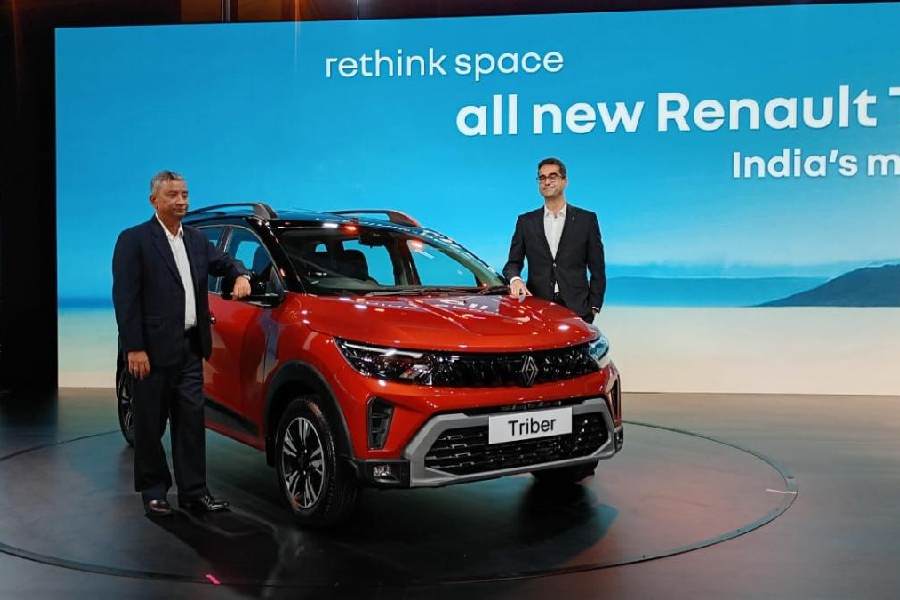French automobile major Renault has an ambitious plan to become the “most Indian” among European automakers in the country.
The Renault group has identified India as a strategic market and has already taken several steps to give its business in the country a boost.
Having announced the acquisition of Nissan’s 51 per cent stake in their Indian joint venture, including the plant at Chennai as part of a global restructuring, the car maker has recently announced the appointment of Stephane Deblaise as the CEO of the Renault group for India.
On Wednesday, Renault launched a refreshed version of its seven-seater vehicle, Triber, in Mumbai, priced between ₹6.2 lakh and ₹8.64 lakh. With more vehicles in the pipeline, the carmaker said it is open to a multi-fuel option presence in India.
“To sharpen the focus on the international market, Renault has introduced a €3 billion investment initiative in 2023, focused on developing strategic hubs outside Europe. Among the international markets, India is a key strategic hub for the Renault group. In line with this, we have recently announced the plan to acquire a 100 per cent stake in the Chennai plant and inaugurated the Renault group’s largest design studio outside France in India,” said Venkatram Mamillapalle, MD of Renault India.
“India will also be a multifuel market. Nobody can say that I will win in EV, hybrid, gasoline or CNG, and we are also talking about ethanol going forward. It will remain like this for years to come. At Renault, we have all the options at an arm’s distance. We don’t need to seek technology. It’s crucial that there is a right ecosystem for adaptability of the customer,” said Mamillapalle.
With increased focus on localisation and vehicles specialised for the country, Mamillapalle said, “the idea is to become most Indian of the European automakers”.
Renault’s market share has come down to less than 1 per cent in India following Covid, and sector-specific challenges such as shortage of semiconductors impacted the company’s business. The Russia-Ukraine war affected the European sales of Renault, which shifted the priority to its revival. “With Europe coming back, the focus is now to grow in the international markets,” Mamillapalle said.
With more vehicles in the pipeline, the export of auto components is expected to grow in the coming years, he said.










